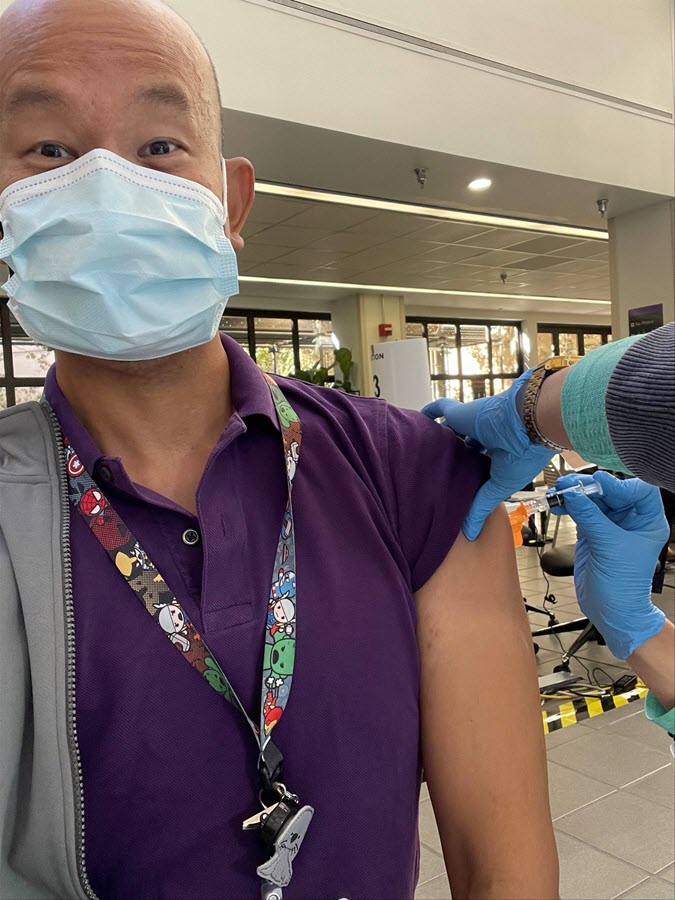Our Most Vulnerable Kidney Patients During COVID-19
Ken Sutha, M.D., Ph.D., is a pediatric nephrologist at Stanford Children's Health, Palo Alto, Calif. As a kidney patient and a physician, he understands the challenges COVID-19 presents.
COVID-19 continues to put kidney patients at risk, as they have immune dysfunction and often comorbidities. Studies during the first wave of the virus show dialysis patients receiving their treatments in-center were 3-4 times more likely to contract COVID-19, versus those who performed dialysis in their home. Those who contracted COVID-19 also often had more severe outcomes.
For patients with late-stage kidney failure, access to the COVID-19 vaccine has improved their care and lifestyle options. However, not all kidney patients are eligible for the vaccine and, even when vaccinated, having immune dysfunction means their body’s response may be less protective against COVID-19.

Because of immunosuppression, many kidney patients may not develop full protection after vaccination compared to a healthy person. This is most profound in transplant patients but also found in dialysis patients.
Dr. Ken Sutha
Dr. Sutha, a competitive swimmer, a youth patient advocate, a physician and a kidney transplant recipient himself, sees the many challenges kidney patients—especially young patients—face during this time.
At age 10, Dr. Sutha was diagnosed with nephrotic syndrome from Focal Segmental Glomerulosclerosis, a disorder that causes your body to pass too much protein in your urine. The resulting damage to his kidneys required a transplant.
In 2006, Dr. Sutha received a living donor transplant from his dad. Over the next decade, he was able to achieve his goals of completing a half marathon and triathlon, and winning a gold medal at the Transplant Games, not to mention graduating from medical school with an M.D. and Ph.D.
Like many transplant recipients, Dr. Sutha needed a second transplant when his first kidney failed. While waiting for his second transplant, he used peritoneal dialysis (PD) which allowed him the flexibility he needed to continue working full time and pursue the activities he loved. He successfully received a second transplant in 2018.
As a physician and patient, Dr. Sutha is taking a proactive and practical approach when thinking about ways to protect patients with kidney disease during the pandemic. This is especially true for the children he sees in his practice .
.
"As the pandemic continues, we must explore strategies for minimizing risk and exposure for our patients by continuing to promote and strengthen infrastructure for telehealth and encouraging solutions like home dialysis and remote blood draws or infusions, minimizing the amount of time patients may have to travel to medical facilities and allowing them to access care from their home," added Dr. Sutha.
The pandemic has only furthered Dr. Sutha's resolve to continue advocating for his pediatric patients and those in the kidney disease community.
Another important protective measure is for people in contact with children who are vulnerable to get vaccinated to reduce the chance of spreading infections.
Dr. Ken Sutha